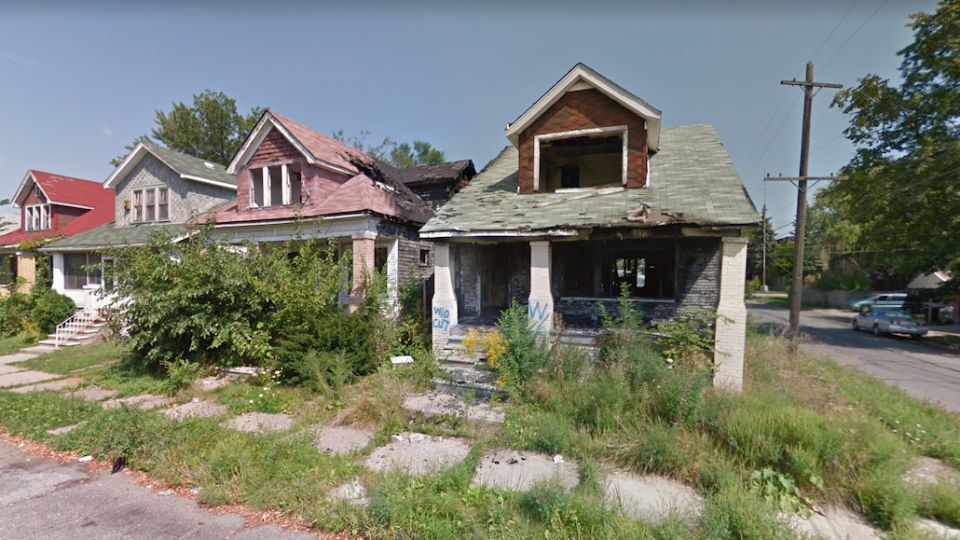Detroit, a city in Michigan and once a global hub for the automotive industry, has been facing long-standing challenges of poverty, unemployment, and crime. After filing for bankruptcy in 2013, numerous neighborhoods in the area have been left abandoned or neglected. Which neighborhood in this city experiences the most significant economic difficulties?
Riverdale: A Town Facing Challenges
According to a report by Money Inc, Riverdale is considered one of the most unsafe and discouraging neighborhoods in Detroit. Riverdale has a population of 2,427 and a low socioeconomic index. The median household income of $29,691 in Riverdale is 49% below the national average. Only 26% of the residents have completed high school, and the unemployment rate is 5.6%, which is 165% higher than the national average.
Crime and violence are significant issues in Riverdale, which are made worse by its close proximity to major highways that make it easier for criminals to access the area. The neighborhood is facing a significant issue with gang activity, resulting in a higher homicide rate compared to other areas in Detroit. Residents face ongoing challenges and struggle to find hope in their daily lives.
Understanding the Causes and Effects of Poverty in Riverdale
Riverdale’s poverty is the result of multiple factors, such as the decline of the auto industry, lack of investment and development, racial segregation, discrimination, and social and economic isolation. The impact of poverty in Riverdale is evident in the negative consequences it has on the health, education, safety, well-being, environment, and infrastructure of its residents.
Here are some of the effects of poverty in Riverdale:
- Residents in this area experience higher rates of chronic diseases such as diabetes, heart disease, asthma, as well as mental health issues like depression, anxiety, and substance abuse, which can have a significant impact on their overall well-being. In addition, their life expectancy is lower and infant mortality rates are higher compared to the national average.
- Education limitations: Riverdale residents demonstrate lower levels of literacy, numeracy, and critical thinking abilities, as well as lower rates of high school graduation and college enrollment when compared to the national average. Furthermore, they have limited opportunities to attend high-quality schools, receive instruction from skilled educators, and access necessary resources. This unfortunate situation exposes them to higher levels of violence and trauma within their educational setting.
- Increased crime and violence: Riverdale residents face a greater likelihood of experiencing or participating in criminal activities, such as theft, physical attacks, sexual assault, and homicide. Trust and cooperation with the police and justice system have decreased, while involvement in gangs and illegal activities has become more common.
- Residents of Riverdale have expressed lower levels of happiness, satisfaction, and hope for the future compared to the national average, which has had an impact on their overall quality of life. Additionally, access to basic services such as water, electricity, sanitation, and transportation is limited in these areas. Moreover, there are fewer opportunities for recreation, culture, and social interaction.
Also Read: This City Can Be the Most Underrated City to Visit in Arkansas
Possible Solutions and Opportunities for Riverdale
It is possible to change the poverty situation in Riverdale and make it better. There are ways to improve the conditions and prospects for both the neighborhood and its residents, such as:
- Promoting economic development: Fostering innovation and investment in Riverdale’s economy, generating new job opportunities, businesses, and industries, while also providing support to existing ones. It is crucial to promote financial inclusion by providing access to credit, savings, insurance, and financial education.
- Promoting social development: Enhancing Riverdale’s social fabric through support for community, civic, and religious groups, fostering stronger social connections, trust, and unity. In order to effectively address poverty and inequality, it is crucial to provide social protection and assistance, including necessities like food, shelter, healthcare, and education. It is also important to focus on tackling the root causes of these issues.
- Environmental development: We are committed to improving Riverdale’s environment through efforts such as land, water, and air cleaning and restoration, promoting green and sustainable practices, and raising awareness about environmental justice. It is crucial to minimize the impact of pollution, hazards, and climate change, and to enhance our ability to adapt and withstand these challenges.
In summary
Riverdale is known for its economic challenges and is considered one of the most impoverished and troubled areas in the country, located in Detroit, Michigan. Despite the challenges it has encountered, Riverdale has a wealth of potential and valuable resources. In order to address its poverty and work towards a brighter future, Riverdale needs greater focus and efforts from all levels of government, as well as support from various sectors including private, public, and nonprofit organizations. It is crucial for Riverdale to receive support and solidarity from both Detroit and the entire nation in order to achieve its dreams and aspirations. It’s definitely not a lost cause, but rather a cause that deserves support.



Leave a Reply